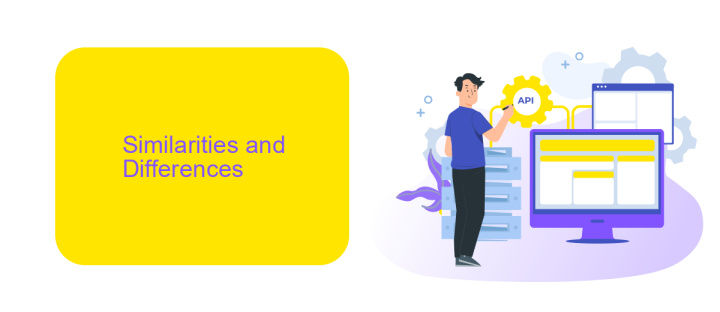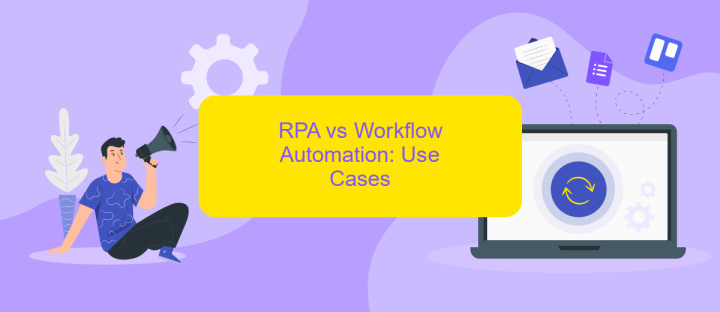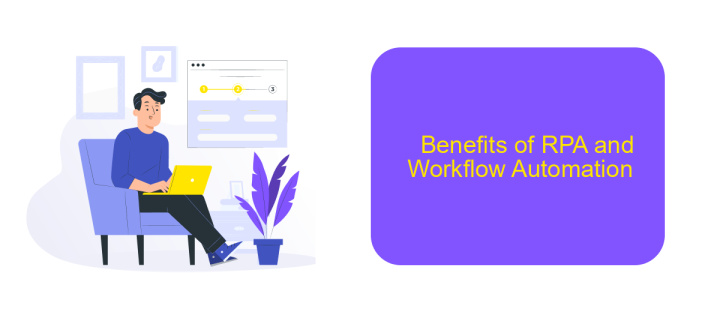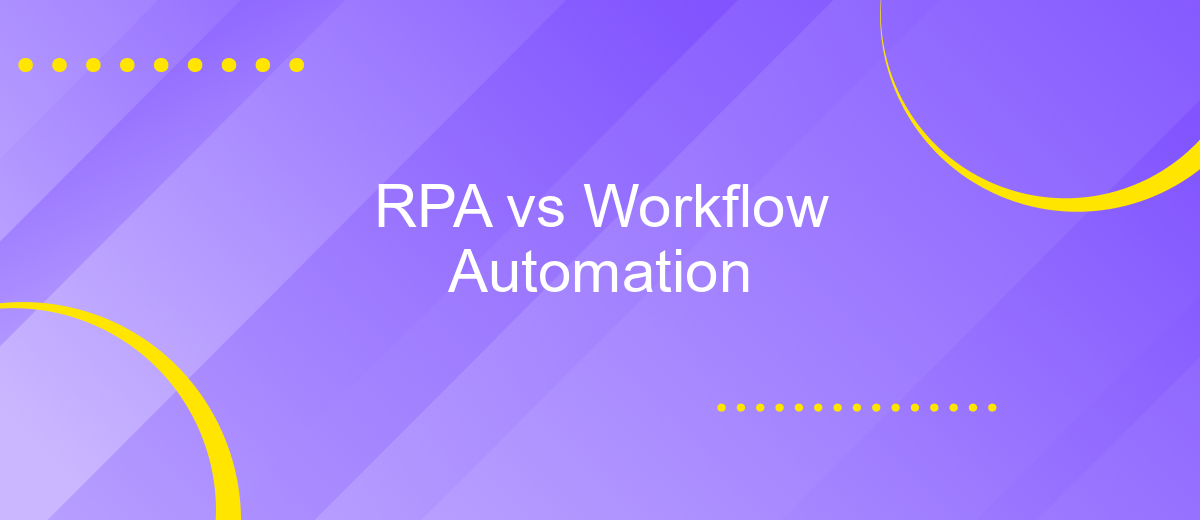RPA vs Workflow Automation
In today's fast-paced digital landscape, businesses are constantly seeking ways to streamline operations and enhance efficiency. Two key technologies that have emerged as game-changers are Robotic Process Automation (RPA) and Workflow Automation. While both aim to optimize processes, they differ significantly in their approach and applications. This article delves into the distinctions and benefits of RPA versus Workflow Automation.
Introduction
In the rapidly evolving digital landscape, businesses are constantly seeking ways to optimize their operations and enhance efficiency. Two popular methods that organizations often consider are Robotic Process Automation (RPA) and Workflow Automation. While both aim to streamline processes, they differ significantly in their approach and application.
- RPA: Utilizes software robots to mimic human actions and automate repetitive tasks.
- Workflow Automation: Focuses on automating business processes through predefined rules and sequences.
- Integration Tools: Services like ApiX-Drive facilitate seamless integration between various applications, enhancing both RPA and Workflow Automation.
Understanding the distinctions between RPA and Workflow Automation is crucial for businesses to make informed decisions. By leveraging the right technology, organizations can not only improve productivity but also drive innovation and growth. This article explores the key differences, benefits, and use cases of RPA and Workflow Automation to help you determine which solution best fits your needs.
Similarities and Differences

RPA (Robotic Process Automation) and Workflow Automation both aim to improve efficiency and reduce manual effort in business processes. They share similarities in automating repetitive tasks, ensuring consistency, and enhancing productivity. Both technologies can be integrated with various systems and applications to streamline operations. For instance, services like ApiX-Drive facilitate seamless integration, allowing businesses to connect different software tools effortlessly.
However, there are distinct differences between the two. RPA focuses on mimicking human actions and automating rule-based tasks across multiple applications without altering existing systems. In contrast, Workflow Automation is designed to manage and optimize predefined processes within a specific application or system, often requiring some degree of customization. While RPA can handle more complex, cross-application tasks, Workflow Automation is typically more straightforward and limited to specific workflows. Understanding these differences helps organizations choose the right solution for their needs.
RPA vs Workflow Automation: Use Cases

Robotic Process Automation (RPA) and Workflow Automation serve distinct purposes, yet they often complement each other in various business processes. While RPA focuses on automating repetitive tasks using software robots, Workflow Automation streamlines business processes by orchestrating tasks and data flow among multiple systems and stakeholders.
- RPA Use Case: Automating data entry across multiple systems, reducing manual errors and increasing efficiency.
- Workflow Automation Use Case: Coordinating approval processes for purchase orders, ensuring timely and consistent decision-making.
- RPA Use Case: Extracting information from emails and inputting it into CRM systems, saving time for customer service teams.
- Workflow Automation Use Case: Managing employee onboarding processes, integrating HR, IT, and facilities departments seamlessly.
Both RPA and Workflow Automation can be enhanced with integration platforms like ApiX-Drive, which simplifies connecting disparate systems and automating data transfer. By leveraging such tools, businesses can achieve greater efficiency and accuracy in their operations, ensuring that both routine tasks and complex workflows are handled effectively.
Benefits of RPA and Workflow Automation

Robotic Process Automation (RPA) and Workflow Automation offer significant benefits to businesses aiming to streamline their operations. RPA focuses on automating repetitive tasks, freeing up employees to engage in more strategic activities. Workflow Automation, on the other hand, optimizes entire processes, ensuring that tasks are completed in the most efficient sequence.
Both RPA and Workflow Automation can lead to substantial cost savings and improved accuracy. By reducing human error and accelerating task completion, these technologies enhance overall productivity. Furthermore, they provide valuable data insights that can be used to further refine business processes.
- Increased efficiency and productivity
- Cost savings through reduced manual labor
- Enhanced accuracy and reduced errors
- Improved compliance and audit trails
- Scalability to handle growing business demands
For businesses looking to integrate these technologies seamlessly, services like ApiX-Drive can be invaluable. ApiX-Drive simplifies the integration of various applications and systems, ensuring that your RPA and Workflow Automation tools work harmoniously together. This not only enhances the effectiveness of your automation efforts but also ensures a smoother transition and implementation process.
Challenges and Considerations
When implementing RPA or Workflow Automation, organizations often face several challenges. One major consideration is the complexity of integration with existing systems. Both RPA and Workflow Automation require seamless integration with various applications and databases, which can be time-consuming and technically demanding. Solutions like ApiX-Drive can simplify this process by providing a platform for easy and efficient integration, reducing the technical burden on IT teams.
Another challenge is ensuring scalability and flexibility. As business processes evolve, the automation solutions must adapt accordingly. RPA tools can sometimes be rigid, requiring significant reconfiguration to accommodate changes. On the other hand, Workflow Automation systems may offer more flexibility but might lack the depth of task automation that RPA provides. Balancing these factors is crucial for long-term success. Additionally, both approaches require ongoing maintenance and updates to ensure they remain effective and secure, which can be resource-intensive.
- Automate the work of an online store or landing
- Empower through integration
- Don't spend money on programmers and integrators
- Save time by automating routine tasks
FAQ
What is the main difference between RPA and Workflow Automation?
Can RPA and Workflow Automation be used together?
What are some common use cases for RPA?
How do I integrate different systems for Workflow Automation?
Is RPA suitable for small businesses?
Strive to take your business to the next level, achieve your goals faster and more efficiently? Apix-Drive is your reliable assistant for these tasks. An online service and application connector will help you automate key business processes and get rid of the routine. You and your employees will free up time for important core tasks. Try Apix-Drive features for free to see the effectiveness of the online connector for yourself.


